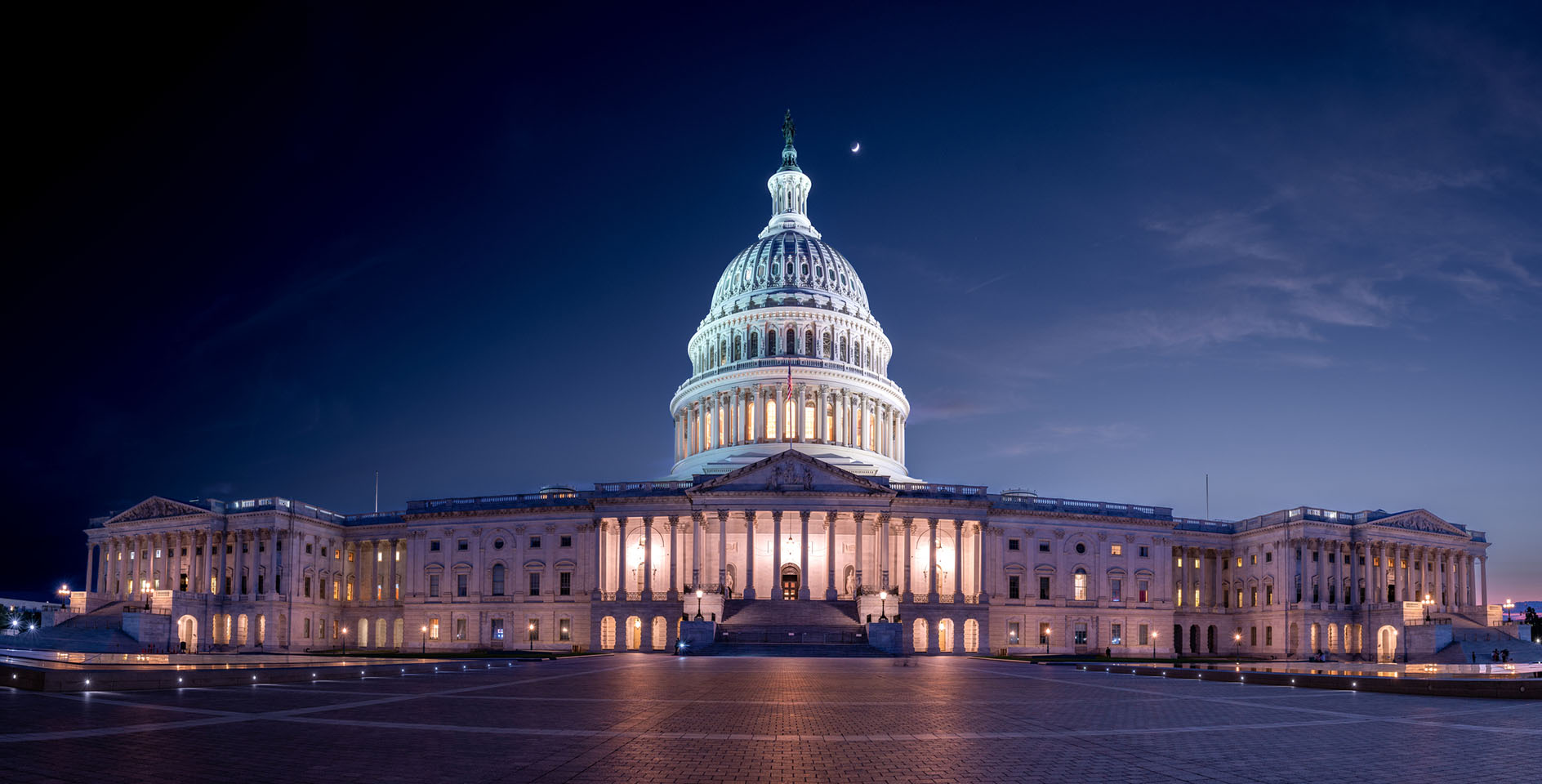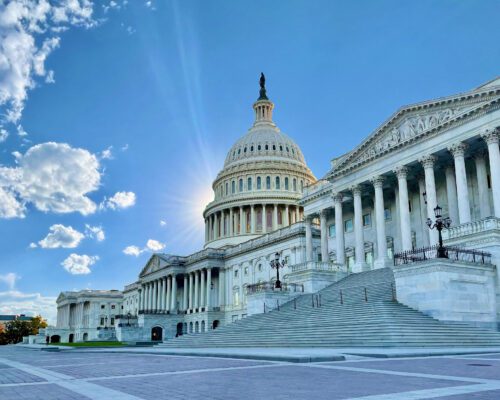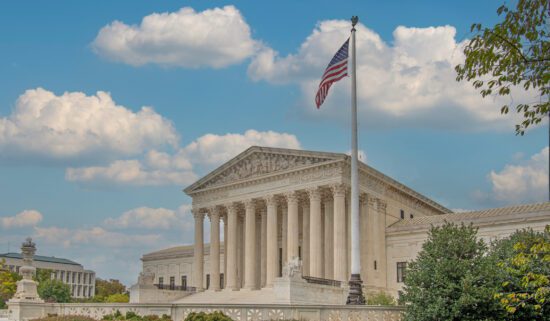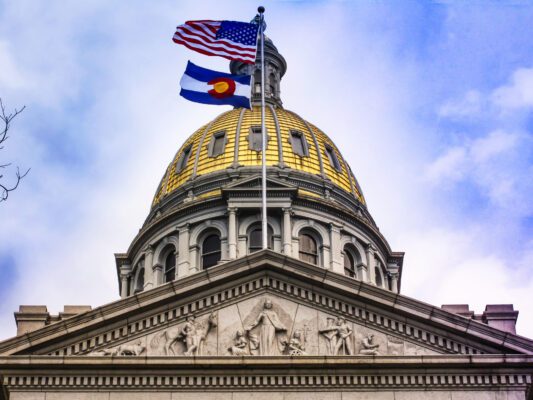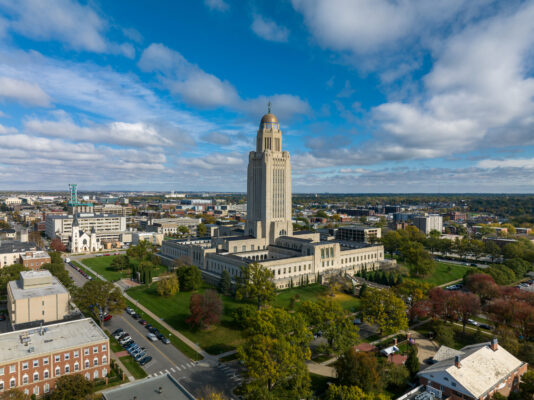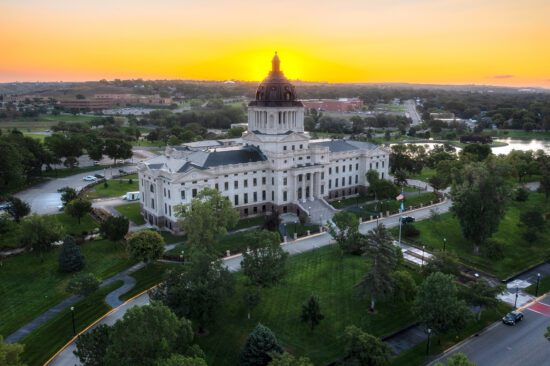With a government shutdown looming, Congress is scrambling to find agreement on how to fund the government before this year’s budget runs out on Sept. 30. If Congress is unable to pass the appropriations bills or a short-term continuing resolution (CR) to temporarily extend its current funding, the government will shut down until an agreement is reached.
Though this tedious and dysfunctional process must be completed each fiscal year, it is one with great importance to Southern Baptists because we care deeply about how our taxpayer dollars are being used. As ERLC President Brent Leatherwood wrote in his letter to Congress on this topic, “As a nation, our values and priorities are most clearly displayed through the allocation of our resources. It is our desire for those resources to be used in a way that promotes life, religious liberty, and the flourishing of all our neighbors.”
In light of those core convictions, the ERLC engages each year with the congressional appropriations process, highlighting both areas of concern and support to lawmakers. As negotiations are taking place, we want to make sure the voices of Southern Baptists will be heard.
How is the government funded?
Each year, Congress must move through the appropriations process in order to fund the government. The process should work like this:
- The president submits his proposed budget process in the early spring,
- then appropriators in the U.S.House of Representatives and Senate begin drafting each of the 12 appropriations bills that fund different parts of the government.
- From there, these bills pass the appropriations committees, pass through both chambers, and then go on to the president’s desk for his signature.
All of this work must be completed by Sept. 30, the end of the fiscal year, or Congress is forced to pass a short-term funding patch known as a CR.
In reality, the president’s proposed budget is largely ignored, and when the House and Senate begin working on their versions of each of these 12 bills, they look vastly different depending on the party in power. Compromise versions of those bills are often combined into a large omnibus or a few smaller minibus bills that make it easier for Congress to pass the bills rather than voting on them individually. The last time Congress passed all 12 bills individually was 1994.
Why does this appropriations process matter?
As trillions of taxpayer dollars are allocated, it is important that we speak into how that money is spent. Without continued advocacy, this money can go toward things that Southern Baptists find objectionable, such as gender transition procedures and abortion at home and abroad. Many of the protections that prohibit government funding from going toward these things and protect consciences must be included each year as a policy “rider.”
As these bills move through a complicated process, there are significant opportunities for harmful provisions to be added in unnoticed or for important protections to be excluded. Consistent advocacy on these issues is essential to ensure the inclusion of important riders such as the Hyde Amendment.
How is the ERLC advocating?
Every year, the ERLC engages in the appropriations process. Our team does a comprehensive review of all 24 of these bills—the 12 House bills and 12 Senate bills. As we wade through thousands of pages of legislative text, we look for anything of concern. Specifically, we’re looking for issues where government funding could be going to an abortion provider or funding gender transition procedures or policies that could implicate the consciences of medical professionals or taxpayers.
We also look for positive things that we can support, such as expanded protections for life or funding to promote international religious freedom.
When negotiators are down to the wire and are trying to decide what gets into a final, compromise package, we want them to know the priorities of Southern Baptists and urge them to include what we care about. After we do our review, we make sure that those concerns and priorities are communicated to negotiators and lawmakers on Capitol Hill.
What is the ERLC advocating for?
One thing that we were excited to see in both the Republican-led House proposed bills and the Democratic-led Senate proposed bills was the inclusion of longstanding life and conscience protection riders. These riders, such as the Hyde amendment, provide essential, baseline protections. For the last two years, they have been excluded from the initially proposed House and Senate bills. Though they were ultimately included in both fiscal year 2022 and 2023 appropriations, it is a victory worth celebrating that compromising these protections was not on the negotiating table this year.
However, even with these protections in place, the proposed House and Senate appropriations bills contain several things concerning to Southern Baptists such as increased funding for:
- abortion providers at home and abroad,
- “gender specific care” that can go toward abortion-travel,
- and the United Nations Population Fund.
Additionally, the House State and Foreign Operations bill excludes a longstanding provision known as the Lautenberg Amendment. The Lautenberg Amendment has provided an essential pathway for persecuted religious minorities from former Soviet Union countries, including many Christians, to find safety in the United States.
There are also several provisions in the proposed House bills that the ERLC is urging Congress to include in its final package. These include provisions such as:
- Prohibiting funding for abortion providers;
- prohibiting funding for gender transition procedures
- prohibiting funding for abortion travel;
- and reinstating important safety precautions for chemical abortion drugs.
Though it remains unlikely that all of these provisions would be included in a compromise package, the ERLC is continuing to advocate for as much progress to be made as possible in protecting life, caring for our neighbors, and upholding conscience rights.
What happens next?
Congress will continue to debate these individual appropriations bills while also considering short-term measures to avert a government shutdown. While a government shutdown looks likely, and it remains unclear how an agreement could be reached to fund the government, the ERLC will continue to advocate on behalf of Southern Baptists and make lawmakers aware of these concerns and priorities.



